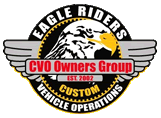"Magnuson-Moss Warranty Act"
Under this federal statute, a manufacturer who issues a warranty on your motor vehicle is prohibited from denying coverage while the vehicle is still under warranty when modified parts are used. Under the act, aftermarket equipment that improves performance does not automatically void a vehicle manufacturer's original warranty, if it can be proven that the aftermarket device is the direct cause of the failure.
Specifically, the rules and regulations adopted by the FTC to govern the interpretation and enforcement of the Magnuson-Moss Warranty Act are set forth in the Code of Federal Regulations, Title 16 - Commercial Practices, Chapter I - Federal Trade Commission, Subchapter G - Rules, Regulations, Statements and Interpretations under the Magnuson-Moss Warranty Act, Part 700 - Interpretations under the Magnuson-Moss Warranty Act. Contained within these rules and regulations is Section 700.10, which states:
No warrantor may condition the continued validity of a warranty on the use of only authorized repair service and/or authorized replacement parts for non-warranty service and maintenance. For example, provisions such as, "This warranty is void if service is performed by anyone other than an authorized 'ABC' dealer and all replacement parts must be genuine 'ABC' parts," and the like, are prohibited where the service or parts are not covered by the warranty. These provisions violate the Act in two ways. First, they violate the section 102(c) ban against tying arrangements. Second, such provisions are deceptive under section 110 of the Act, because a warrantor cannot, as a matter of law, avoid liability under a written warranty where a defect is unrelated to the use by a consumer of "unauthorized" articles or service. This does not preclude a warrantor from expressly excluding liability for defects or damage caused by such "unauthorized" articles or service; nor does it preclude the warrantor from denying liability where the warrantor can demonstrate that the defect or damage was so caused.
Under the Magnuson-Moss Act, a dealer must prove, not just vocalize, that aftermarket equipment caused the need for repairs before it can deny warranty coverage. If the dealer cannot prove such a claim — or it proffers a questionable explanation — it is your legal right to demand compliance with the warranty. YOU MUST DEMAND COMPLIANCE is the key. The Federal Trade Commission administers the Magnuson-Moss Act and monitors compliance with warranty law.
That being said, if you choose to modify your HD, and suddenly the fancy new electronic control boxes that you added to your HD make it run rough, not start when cold, or buck like a bronco, the dealer can and will charge a diagnostic fee to find out what is wrong with your car. If it turns out that your modifications are the cause of the problem, the dealer has every right not only to charge you for the diagnosis and repair, but to also void the portion of the warranty that has been compromised by the use of those aftermarket parts. Likewise, a dealer may refuse to service your HD if it is adorned with aftermarket parts to the extent that its technicians cannot reasonably be expected to diagnose what is wrong with your HD. As an example, all HDs are equipped with OBDII (On Board Diagnostics II) ports that dealers use to read engine diagnostic codes for everything from an engine vacuum leak to a malfunctioning emissions system. If your chosen modification has compromised the dealer service center's ability to scan for these codes (aftermarket ECUs generally do not support OBDII), then there is a strong probability that the dealer service center will
Deny warranty coverage
Refuse to service the car
Note with your factory field representative for your region/district that your car has been "modified"
 Author
Topic: Aftermarket ECM's and Extended Warranties (Read 6418 times)
Author
Topic: Aftermarket ECM's and Extended Warranties (Read 6418 times)

